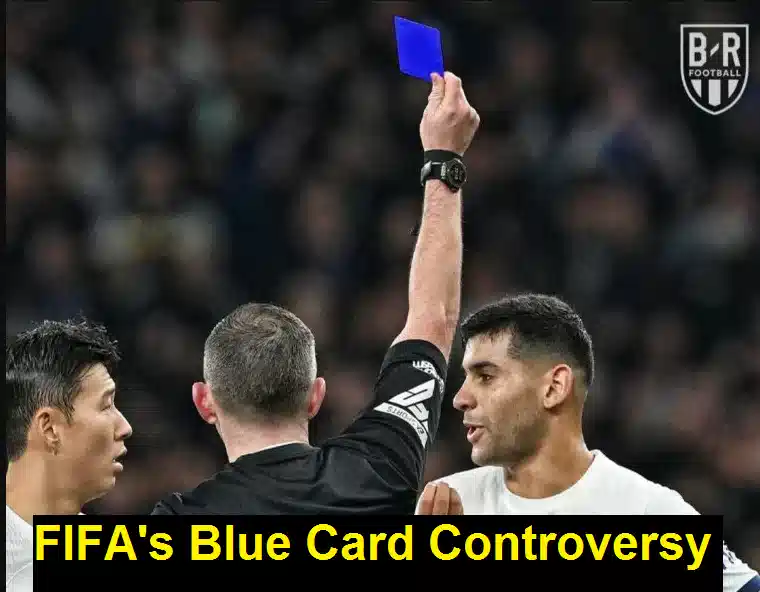Amidst FIFA’s Blue Card Controversy, the discourse surrounding the introduction of this novel disciplinary measure has sparked significant debate within the football community. This innovative proposal aims to redefine how infractions are addressed on the pitch, potentially reshaping the landscape of football discipline. Let’s delve deeper into this contentious topic and explore its implications for the future of the sport.
FIFA’s Blue Card Controversy: Reimagining Discipline in Football
FIFA wishes to clarify that reports of the so-called ‘blue card’ at elite levels of football are incorrect and premature. Any such trials, if implemented, should be limited to testing in a responsible manner at lower levels, a position that FIFA intends to reiterate when this agenda item is discussed at the IFAB AGM on 2 March.
FIFA wishes to clarify that reports of the so-called ‘blue card’ at elite levels of football are incorrect and premature.
Any such trials, if implemented, should be limited to testing in a responsible manner at lower levels, a position that FIFA intends to reiterate when this…
— FIFA Media (@fifamedia) February 8, 2024
FIFA has indicated that they will discuss the matter in the International Football Association Board’s (IFAB) general meeting. The global football organization has stepped back from its position to implement ‘blue cards’ at elite clubs and international levels. It was announced on Friday that the introduction of ‘blue cards’ in the game was supposed to take place at the end of this week. No card has been introduced in the game for 50 years; yellow and red cards were introduced at the 1970 FIFA World Cup held in Mexico.
The introduction of blue cards in football will be used as a reprehensible foul, challenge, or as a punishment for dissent with match officials. The player will have to leave the ground for 10 minutes, and if the player receives two blue cards, they will be dismissed and considered a red card.Similarly, the result of a blue and yellow card will also turn red according to the rules of the game.
FIFA has cast doubt on the news of introducing ‘blue cards’ in elite-level football.
FIFA has indicated that they will discuss the matter in the International Football Association Board’s (IFAB) general meeting. FIFA’s official Twitter handle issued a statement, “FIFA wants to make it clear that reports of the well-known ‘blue card’ at the aristocratic level of football are incorrect and premature.” The official statement further said, “If any such trial is applied, it should be limited to a responsible manner at the lower level until it is thoroughly examined, a position FIFA intends to reaffirm at the AGM of IFAB on March 2nd.”
Cards have been introduced in other sports such as hockey, where often yellow, red, and green cards are used for misconduct in the game. However, the introduction of blue cards in football can alter the essence of the game permanently and can have serious implications.
Conclusion:
The proposed introduction of blue cards in football by FIFA has sparked controversy and raised questions about the future of disciplinary measures in the sport. While FIFA has stepped back from its initial plans, discussions within the International Football Association Board (IFAB) indicate a continued dialogue on the matter. Whether blue cards will become a permanent fixture or remain a speculative idea, the debate underscores the delicate balance between maintaining the essence of football while adapting to modern challenges.





